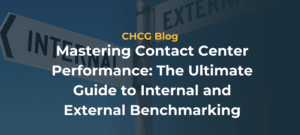We have been spending a lot of time this year on seller searches for buyers looking to do acquire contact centers and BPO/service providers. Buyers today have the cash, vision and plan to build and are just seeking the right match – a good opportunity, exciting adventure and growth/profit positive. Over my 25 years in the call center/BPO space, I have seen and directly been part of both good acquisitions (successful, profitable, smooth, positive) and bad acquisitions (negative, struggling, ineffective, poorly planned, vision absent). As we work with our clients and partners through this process, we strive to help create win-win opportunities that fall into the good acquisition scenarios.
Here is a quick checklist to help establish the basic standards for a smooth, positive acquisition process – and the extra steps that can make it great!
Standard good practices and what I would consider the minimum for acquisition evaluations are:
- EBITDA Review & Analysis – Check a company’s operating profitability before non-operating expense (such as interest and “other” non-core expenses) and non-cash charges (depreciation and amortization) to evaluate core profit trends.
- Client Mix – Review the balance of clients, industries and project types served by the center. Ensure that there is a healthy balance and evaluate potential client risk.
- Technology Status – Technology upgrades can be expensive and something you want to prepare for if needed. Review current licensure status, software, and hardware against business needs to ensure you are accounting for any needed spend in this area.
- Labor Costs – Find out what the percentage of overall expenses are related to labor and evaluate whether or not this is in alignment with the size of the company and future needs. Review pay rates to see if they meet the labor market for any future recruiting needs and evaluate against retention.
Additional items for consideration that can make all the difference when executing a successful acquisition and transition include:
- Cultural Assessment – Knowing before your transition how aligned your organization is with your new acquisition will help map out the change management plan and transition phase for the staff involved within both organizations.
- True Operational & Leadership Assessment – Preparing for any leadership changes or major operational changes takes some finesse if you want it done right and with minimum impact. Do your due diligence on meeting and evaluating staff and procedures based on current and future business needs to ensure you are setting your team up for success.
- Post-acquisition Integration and Strategy Plan – Having a well thought out and planned transition timeline that incorporates staffing changes, technology changes and operational changes is critical to the success of the acquisition. Whether it’s mapping out the first 60-days or the first year, having a plan and strategy in place on how to integrate and
- Gap Assessment for Key Personnel and Skills Needed – In addition to reviewing the leadership team, you want to also conduct a gap assessment of all key personnel and skills needed for future business needs. Knowing your key players, supporters and informal leaders within the organization can help with a smooth transition. Creating training plans and/or promotional paths ahead of time for the staff will only serve to benefit the whole transition process.
When done right, acquisitions are times of exciting change and positive growth! If you feel that we can benefit you and your team through a successful acquisition, we’d love to be part of the process!




